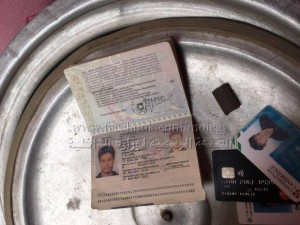Fahwad Al-Khadoumi (nsnbc) : Egypt’s Foreign Ministry has summoned the ambassadors of Canada, Germany, Italy, the Netherlands, the United Kingdom over criticism of the arrest of Egyptian human rights lawyer Ibrahim Metwally.

Giulio Regeni – In September still too “hot” an issue to allow his family’s lawyer to leave for Geneva? In November an issue that prompted international criticism and Cairo to summon western ambassadors.
Canada, Italy, the Netherlands, Germany, and Britain after their countries’ statement criticizing Egypt’s arrest of rights lawyer Ibrahim Metwally. In September 2017 Egypt’s High State Security Prosecution ordered the detention of human rights lawyer Ibrahim Metwally.
Investigating forced disappearances, Metwally was detained on charges of “spreading false news and establishing an illegal group” called “Association of the Families of the Disappeared”. Besides working for the allegedly “disappeared”, Metwally is also part of the legal team representing the family of the late Giulio Regeni who was murdered in the Egyptian capital Cairo in 2016.
Several European countries, including the reiterated their calls for the release of Metwally from detention. For the first time, Germany, Italy, the Netherlands and Britain, as well as Canada, said they were “deeply concerned” at the continuing detention of the human rights lawyer Ibrahim Metwally Hegazy.
“We are concerned at the detention conditions that Ibrahim Metwally Hegazy is reportedly enduring, and continue to call for transparency on prison conditions in Egypt,” said a joint statement published on the British government website late on Friday.
Ahmed Abou Zaid, the spokesperson of Egypt’s Foreign Ministry, said that Assistant Foreign Minister for European Affairs, Ambassador Ehab Nasr summoned the western ambassadors to the headquarters of the ministry. Zaid released a statement saying:
“The summons comes as a strongly-worded official protest over the statement issued by the five countries on the conditions and circumstances of the arrest of Ibrahim Metwally. … It is, also, to express Egypt’s strong discontent with the statement’s unacceptable and outright intervention in its internal affairs and in the work of the judiciary.”
After having summoned the ambassadors, Nasr formally demanded that the countries seek accuracy while describing the legal position of Metwally “who is not a detainee but is rather held in custody over cases under investigation by the Public Prosecution.”
The Assistant Foreign Minister also urged the ambassadors to respect the judiciary procedures in Egypt and said that it is unfortunate that such a statement comes from countries that call for respecting the rule of law and the principle of separation of powers.
Several countries and rights organizations previously released statements criticizing the rights situation in Egypt. However, claims this criticism is an explicit intervention in its domestic affairs, while it does not consider Cairo summoning ambassadors over statements made in the respective, critical countries as explicit interference into their domestic affairs.
Metwally was arrested at Cairo International Airport in September. He was set to travel to Geneva, Switzerland, to address a United Nations meeting there. He was scheduled to give a speech on enforced and involuntary disappearances in Egypt, and he was to speak about the highly-controversial Regeni case as well. Following the arrest, the chairman of the European Parliament’s Subcommittee on Human Rights, Pier Antonio Panzeri called on the Egyptian authorities on Tuesday to unconditionally release Metwally.
Bilateral relations between Egypt and have Italy suffered substantially after Italian researcher and student Regeni had been killed in Cairo. The Italian government rejected several claims by the Egyptian authorities in regards to the killing of Regeni, and accused Egypt’s ministry of interior of killing Regeni. However, Egypt denies this claim. The Egyptian government have been repeatedly accused of conducting enforced disappearance on activists. However, Egypt denies this claim.
Regeni’s lifeless body was found on the outskirts of Cairo in February 2016. His body showed signs of torture. Cairo and Rome have since been at loggerheads over a details of a joint investigation. On Thursday Egyptian police killed four gang members suspected in killing Regeni.
 Egypt’s Foreign Ministry stated in March 2016 that police raided the home of the sister of one of the killed suspects and discovered Giulio Regeni’s passport, his Visa Card as well as his ID cards from the American University in Cairo and Cambridge University there. The Interior Ministry noted that the four gang members were specialized in impersonating police officers and kidnapping foreigners.
Egypt’s Foreign Ministry stated in March 2016 that police raided the home of the sister of one of the killed suspects and discovered Giulio Regeni’s passport, his Visa Card as well as his ID cards from the American University in Cairo and Cambridge University there. The Interior Ministry noted that the four gang members were specialized in impersonating police officers and kidnapping foreigners.
Regeni was a Cambridge PhD student at Girton College in the Political and International Department. He was a visiting scholar for the American University in Cairo. Regeni went reportedly missing as he was heading from Giza’s Behoos metro station to Bab-el-Louk in downtown. It is at this point in time uncertain whether or not Giulio Regeni has had ties to a foreign intelligence service or to any of the outlawed organizations in Egypt.
Giulio Regeni’s affiliation with the American University in Cairo has prompted questions about whether Regeni was operating in Egypt for a foreign intelligence service. The American University is known as a hub for people with ties to intelligence services. Among its alumni are, among others, CIA Director John Brennan and New York Times “columnist” Thomas Friedman. Well-informed sources as well as Egyptian authorities have also noted that Regeni’s work in Egypt may have brought him in touch with potentially dangerous circles with links to terrorist organizations. Regeni was officially studying labor rights and organizations in Egypt. Several human rights organizations have suggested that Regeni may have been tortured and killed by Egyptian security forces.
F/AK – nsnbc 06.11.2017
Source Article from https://nsnbc.me/2017/11/06/86976/
Related posts:
Views: 0
 RSS Feed
RSS Feed
















 November 6th, 2017
November 6th, 2017  Awake Goy
Awake Goy 










 Posted in
Posted in  Tags:
Tags: 
















